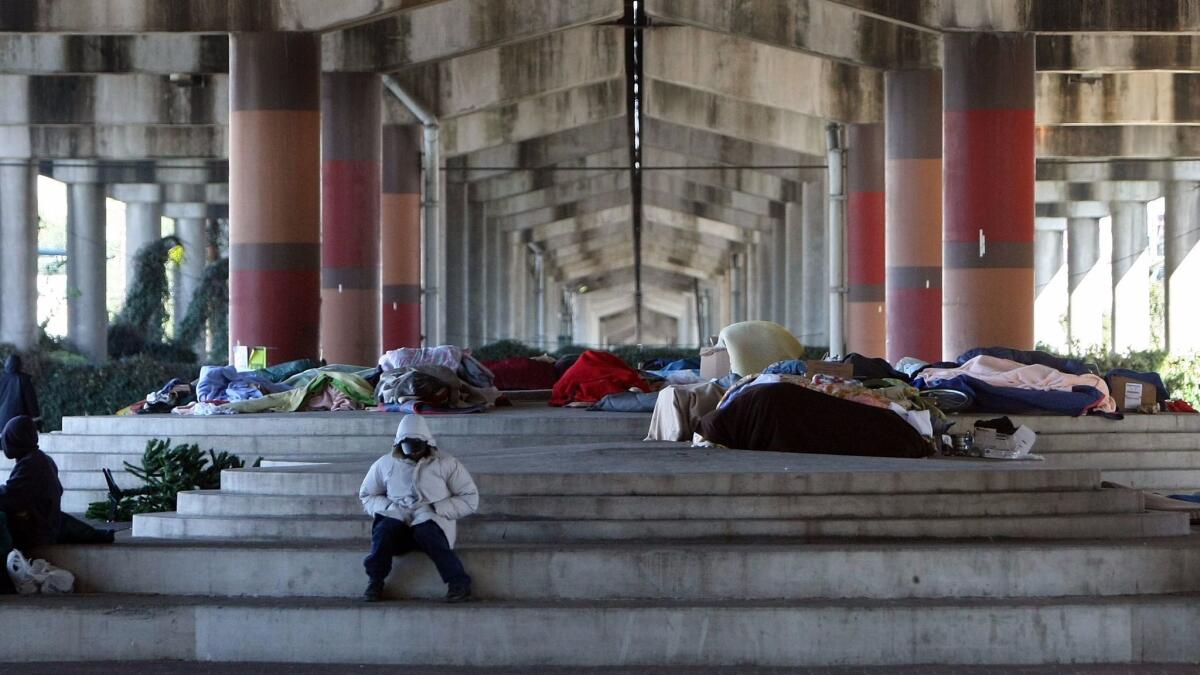Opinion: Poverty-stricken populations keep voting for Republicans. Why?

- Share via
To the editor: While your article was certainly salient, does anyone notice that the poorest counties in the country are in solidly red states? (“By drawing 50 ‘states’ according to income, study reveals ‘developing countries’ within the U.S.,” Nov. 17)
Trickle-down economics has been a disaster for these states, yet the people return Republicans to power there time and time again. The blue states inevitably shoulder the burden to prop these states up through taxes sent to the federal government where they then only marginally make their way to the red states due to conservative state governments’ shredding of the social safety net.
Democrats need to improve their messaging if they ever hope to regain majorities in government; otherwise the divide in quality of life between the states will only grow. One only need look at the economies of Kansas and Mississippi versus California and New York as two examples.
Mike Aguilar, Costa Mesa
..
To the editor: It is reported that the research team from East Tennessee State University used data reported by the U.S. Census Bureau’s American Community Survey on average county income from 2009-13. Then a whole list of comparisons were made on the quality of life.
I read this article with interest until I realized that the comparisons are based on reported median income. What about the entitlements provided to many who qualify? Those are funded by taxes redistributed from middle-class Americans like me.
The conclusion put forth in this article is that there are areas of our population that have a quality of life equivalent to developing countries. But it fails to report conditions following this redistribution of wealth.
I, for one, do not feel as deeply disturbed as the researchers may want me to feel.
Carolyn Parsons, Mission Viejo
Follow the Opinion section on Twitter @latimesopinion and Facebook
More to Read
A cure for the common opinion
Get thought-provoking perspectives with our weekly newsletter.
You may occasionally receive promotional content from the Los Angeles Times.






